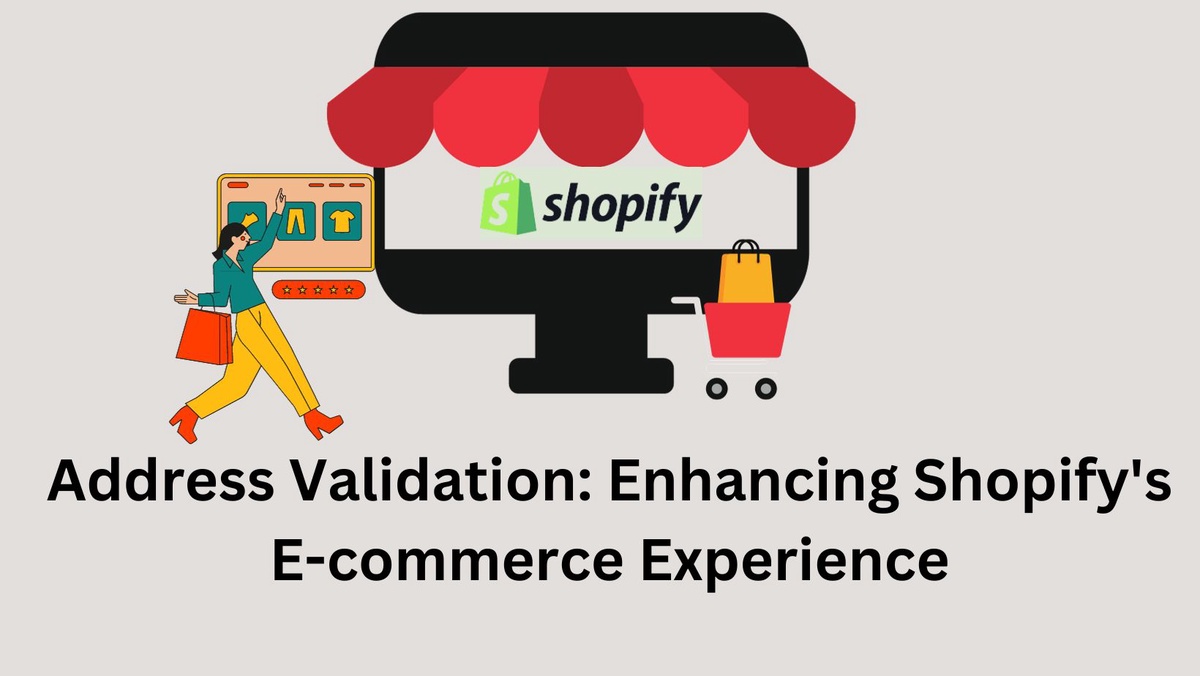A product rarely stays unique for long. If it is popular with customers, competitors will be quick to copy it. The only way to retain your customer’s loyalty is to deliver a superior customer experience. When shopping online, customers expect a smooth checkout experience and quick delivery. A survey revealed that over 98% of online customers base their loyalty to a brand on the delivery experience.
Making sure customer orders are delivered on time comes down to having the right addresses. So how do you ensure that your customer hasn’t made a typographic error? Or missed out on typing a few details? – Address Validation. Let’s dive into the effects address validation can have on the customer experience and shipping accuracy offered by eCommerce websites.
What is address validation?
Simply put, address validation refers to checking street addresses entered by a customer against reliable third-party databases to ensure that:
- The address is complete
- All elements of the address are real
- The address is deliverable
Rather than check these details manually, eCommerce websites can automate the process through address validation tools. These tools can be easily integrated with an eCommerce website’s checkout process. This allows you to give customers a smooth checkout experience while validating their details.
Address validation tools can also transliterate addresses from one language to another and structure them according to standardized formats. In addition, they may also be capable of using street addresses to pinpoint latitudinal and longitudinal coordinates for the delivery point.
How does address validation affect customer experiences and shipping accuracy?
411010 is a PIN code for Pune. Writing ‘3’ instead of ‘4’ in the pincode may sound like a minor mistake but it changes the address to a village in West Bengal! Address validation helps keep such addresses out of your database. In turn, this helps brands deliver better customer experiences by:
Smoothening the online buying process
Address validation tools compare the data being entered by customers with third-party databases and deliver almost real-time results. There are no manual OTPs or codes that need to be entered to verify customer details. Thus, the checkout process is much smoother and quicker. Address validation tools like Melissa may also be used to power web forms with autocomplete options. This further reduces keystrokes and the time spent completing checkout formalities.
Reducing misdeliveries
When an address is incorrect or incomplete, last-mile delivery agents find themselves unable to hand over the order to your customer. The package is returned to the seller. Your customer ends up upset and reattempting delivery means an additional cost. However, when addresses are verified before entering the database, sellers are assured of having deliverable street addresses. All addresses are qualified as correct, complete, up-to-date and linked to the right person. Thus, the number of failed deliveries reduces thereby increasing customer satisfaction rates.
Shortening delivery timelines
When faced with vague addresses that have not been correctly formatted, delivery agents may find it difficult to find the point of delivery. A package may bounce between cities and states before it finally reaches the customer.
Validating addresses before an order is shipped helps fight this. Addresses entered by a customer are verified to be correct and deliverable. A street address can also be converted to geocodes to help delivery agents identify the point of delivery. They can then find the shortest route to the delivery points.
Simplifying international order processing
One of the biggest advantages of selling your product online is the ability to cater to a global audience. However, orders from different countries not only come in different languages but may also involve addresses with unfamiliar formats. For example, Germany has a 5-digit postal code while India has a 6-digit postal code. This makes it even harder for addresses to be verified if they rely on manual efforts.
Address verification tools can play a critical role in making these addresses understandable and easier to deliver. They have access to local databases as well as databases from other countries. Hence, they ease the global address verification process. For example, addresses that have been entered in a local language can be transliterated. They can also be formatted according to a set standard.
Identifying fake addresses
Many fraudsters intentionally enter fake addresses to cheat businesses and impersonate legitimate customers. Using an undeliverable address keeps fraudulent purchases from being tracked to them. If this happens too frequently, customers may become vary of interacting with the website and fear for the safety of their data.
Address verification tools help mitigate this risk by identifying addresses that seem fake and undeliverable. Brands can use this information to stop fraudulent transactions from being completed and thereby protect themselves and their customers.
Cutting unnecessary expenses
Apart from marring the customer experience, relying on unverified addresses can also prove to be expensive for businesses. Having to repack and reship orders means paying for shipping twice. Then there are cases where the order is delivered to an incorrect address and isn’t returned to the seller. The brand then has to ship a second product for the same order.
The simple act of verifying addresses before using them minimizes the risks of such unnecessary costs.
Getting started with address verification
Address verification impacts businesses as well as their customers. It allows businesses to optimize their resources and invest in measures that improve the overall customer experience rather than spend on handling returns and reshipping. Ultimately, customers who are happier with the experience offered by your website, are more likely to return and stay loyal to the brand.
The availability of modern address verification tools like those offered by Melissa makes this process easier. It is scalable and helps businesses keep up with a growing customer database in 40+ countries and territories. With the added benefit of autocompleting street addresses, it halves data entry time and lets businesses experience higher conversion rates. What’s more, it is compatible with all Windows-based Customer Relationship Management (CRM) platforms, web, and custom applications.


Comments (1)